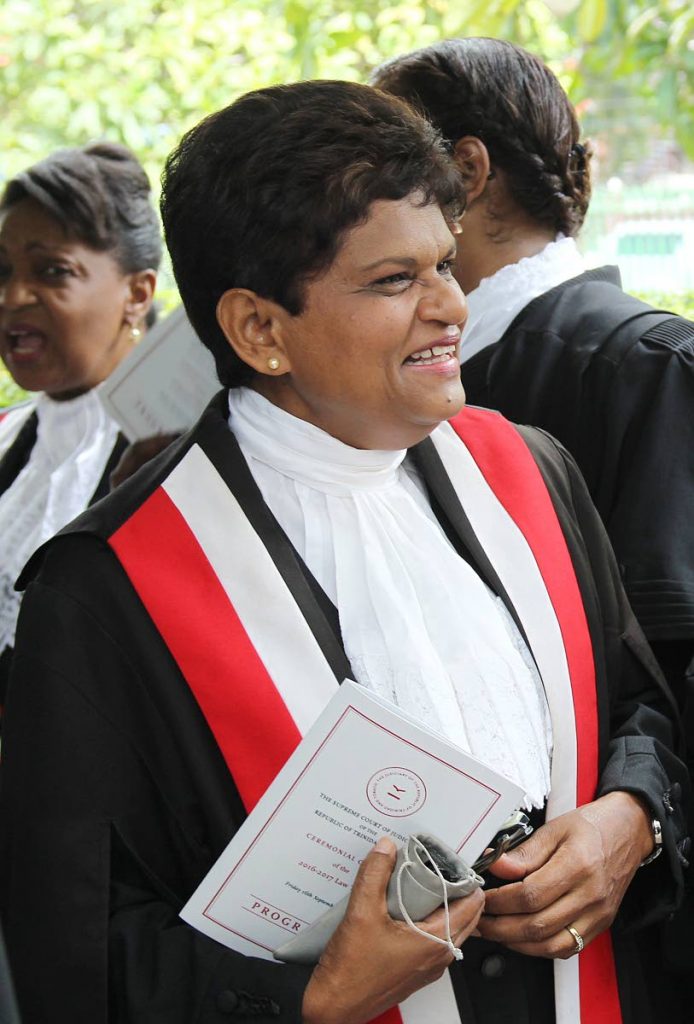Appeal Court provides guidance for disciplining permanent secretaries

THE COURT of Appeal has set aside the orders of a High Court judge on the correct regulations to use when starting disciplinary action against senior public officers, in particular permanent secretaries or heads of department.
On Thursday, Justices of Appeal Alice Yorke-Soo Hon, Gregory Smith, and Vasheist Kokaram allowed the appeal of the Public Service Commission (PSC) against a ruling of then High Court judge, Justice James Aboud, in favour of an acting PS who was initially slapped with 26 disciplinary charges in 2016, which were later dropped.
Smith, who delivered the decision, said the Appeal Court did not usually entertain appeals that are considered academic but did so, in this case, to provide guidance to the PSC and other commissions on the correct procedure to adopt involving a senior public officer.
The PSC, through its attorney Russell Martineau, SC, on Wednesday, urged the judges to entertain its appeal to clarify the law on how disciplinary proceedings against senior public officers are to progress.
In his ruling, Aboud granted several declarations that the decision of the PSC not to provide the acting PS with documents relating to the charges, to interdict her, and to send the matter to a one-man tribunal was in excess of the commission’s jurisdiction and contrary to law as they were in breach of natural justice. He also granted an injunction preventing the PSC from appointing or convening the tribunal until the public officer received the documents she said were needed to defend the charges. Aboud also held the PSC should have advanced its public interest considerations so that the deputy PS could properly respond to her interdiction.
Aboud held that the failure to provide certain documentation to the acting PS to respond to the allegations ran afoul of regulation 90 of the public service regulations.
However, Smith said the judge erred in finding that regulation 90.1 related to permanent secretaries. He said that regulation was not applicable to permanent secretaries or heads of department as it was the procedure to adopt for normal public officers. The judges held the applicable regulation for senior public officers was 84 B.
He also said although it was a matter of common sense, there was no duty to provide particulars of an alleged offence but only to inform the public officer of the allegations.
Smith also said there was also no duty to provide this in writing.
He also said in this particular case – pointing out that other cases may not be similar in nature and must be considered individually – the failure by the PSC to provide documentation to the acting PS did not automatically bring about breaches of natural justice since the demand for information at the inquiry stage of an investigation would depend on the nature of the allegations against the public officer.
He also said while it would be “good practice” to get a response from the public officer when interdicting them is being considered, it was not necessary and it was also not a mandatory requirement for the PSC to provide its “public interest reasons” for contemplating the course of action.
Although initially, the judges dismissed the PSC’s appeal since it was considered an academic one as they could not send it back to a judge for consideration or consider the merits of it themselves, they agreed to uphold the challenge since Martineau said if the judge’s orders remained it was likely to create some “controversy” in future matters.
In his ruling, Smith said, “We have identified several errors of the judge and it would be wrong to let the orders stand.”
“In these special circumstances, we will allow the appeal and set aside the orders of the trial judge.”
The Appeal Court also departed from the usual cost order since attorneys for the PSC and the acting PS agreed that they will not seek any because of how the case progressed.
The acting PS was represented by Ian Benjamin, SC.

Comments
"Appeal Court provides guidance for disciplining permanent secretaries"